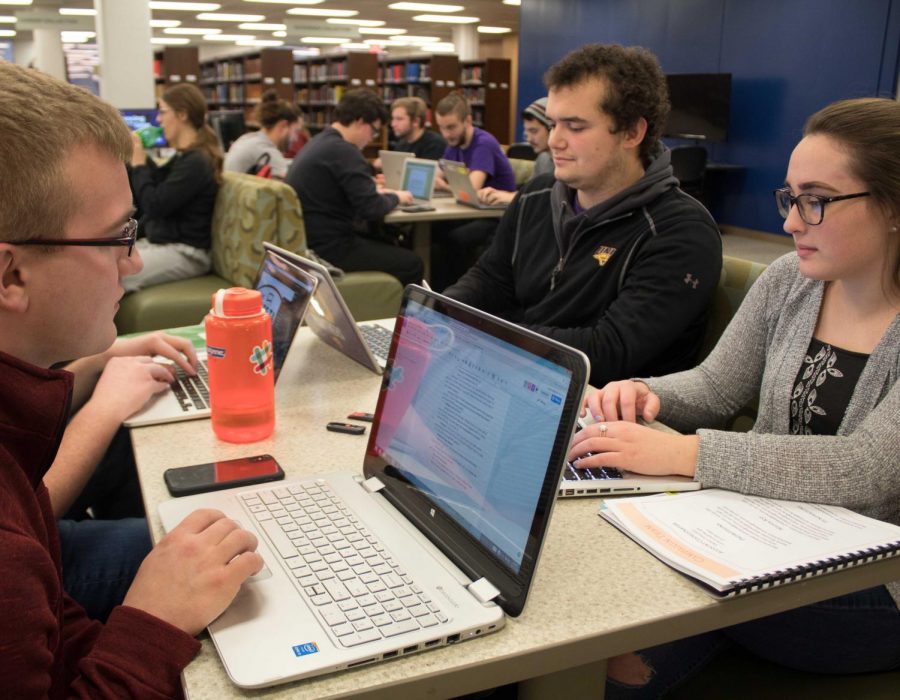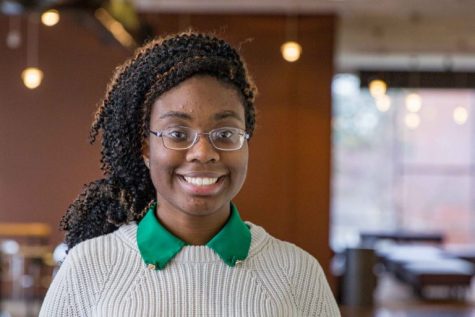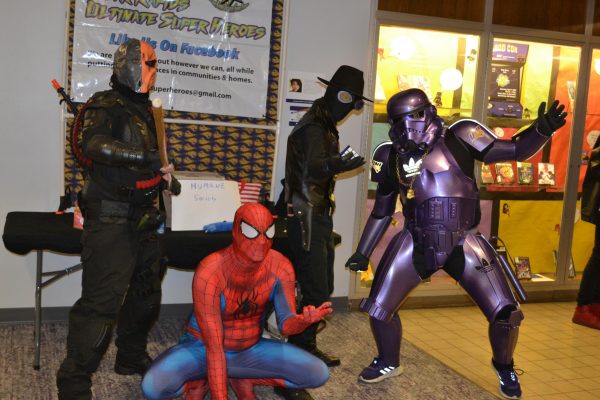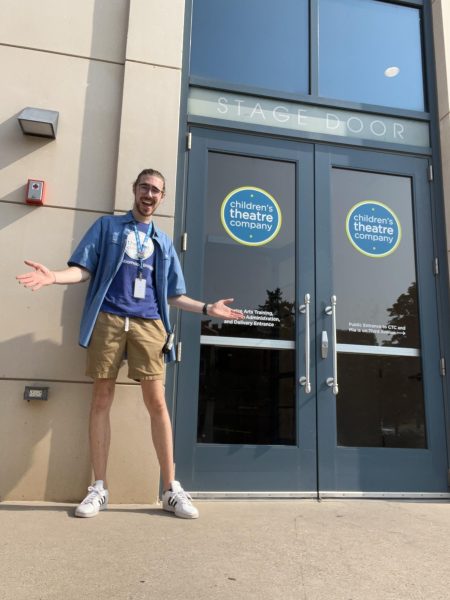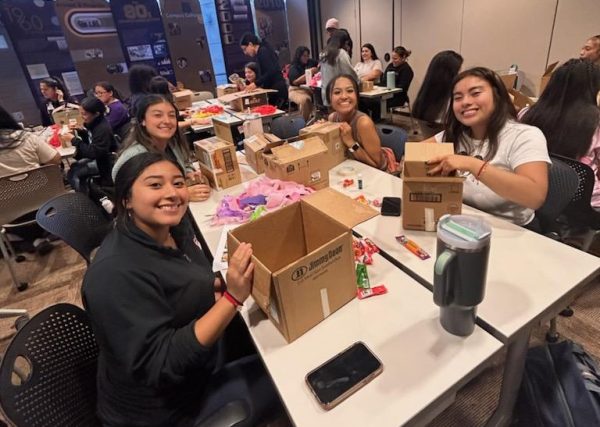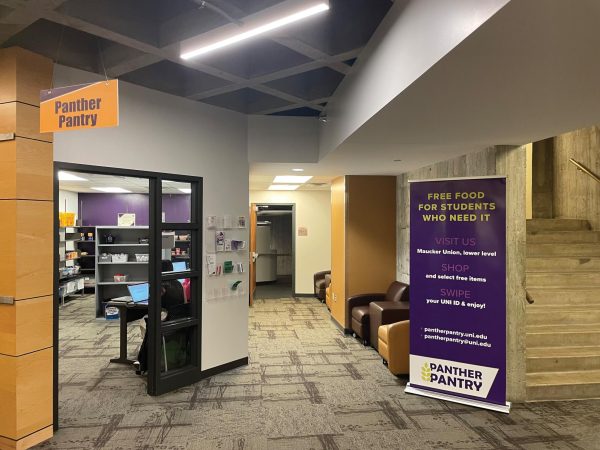Finals week preparation: the do’s and dont’s
There are numerous resources available to aid students studying on campus during finals week.
Dec 4, 2017
Finals are fast approaching, and the library is beginning to fill with students cramming for their tests. Despite the exams, projects and final due dates coming, students may feel tempted to procrastinate.
Casey Hoekstra is a graduate assistant at UNI, working at the College Reading and Learning Center, and when it comes to defeating procrastination, she suggests students plan out when they are going to study and be intentional about saying exactly what they are going to do during those times.
“If you say on Friday right after class, I’m going to make flash cards for my biology class and I’m going to fill out my study guide for my humanities class, you will have a purpose when you go in there,” Hoekstra said. “You will have direction, and you’ll know when you’re done.”
Hoekstra also recommends starting to study at least a week or two in advance of a big test, as many students try to cram all of their studying into the night before their exam, which reduces their ability to remember the information.
“If you’re studying ahead of time, then you’re more likely to remember information right away, instead of waiting until the night before,” Hoekstra said. “I’d say the biggest thing is just getting a head start.”
Latricia Hylton, math coordinator for the Academic Learning Center, offered similar advice. She suggests going back to review exams taken throughout the semester, as this will allow students to figure out what they do and don’t know.
“When they review those previous exams, they need to actually treat it like it is an exam in order to put themselves in that testing environment,” Hylton said.
According to Hylton, it is important that students take into consideration the volume of material they will have to study, as well as their professor’s expectations.
“[They] may be different for finals than for a regular test,” Hylton said.
Kristelle Pearson is a junior international student majoring in teaching at UNI this semester. When she studies, she said she makes a list of everything she needs to do each week and sets goals for herself to accomplish.
“I set rewards every time I accomplish those goals, such as watching an episode of my favorite TV show,” Pearson said.
According to Hoekstra, it is important that students get enough sleep and stay hydrated, with water rather than coffee.
“A lot of people pull all-nighters, but when you don’t sleep your body can’t process information, so you are more likely to forget it,” Hoekstra said. “So, if you’re pulling an all-nighter and then rolling into the test with no sleep, you’re less likely to remember the stuff you spent all night studying.
“Some other general easy tips include making sure that you’re still eating right, you still take time for yourself, and take mental breaks because otherwise you are just putting way too much stress on your body,” Hoekstra said.
Austin Smith is a senior marketing major, and said he tries to stay healthy during finals to prevent stress.
“I try to work out every chance that I can,” Smith said. “I eat well and I try to make sure I am getting enough sleep.”
For students studying the harder subjects UNI has to offer, Hoekstra suggests going to the Academic Learning Center to get help from a tutor when studying for exams. She also suggests students utilize their professors as much as possible because asking them questions about how to prepare for the tests can be really helpful.
“I would say definitely take advantage of the tutors,” Hoekstra said. “And there are tutors that are available in different buildings, like Curris.”
Hylton suggests students who struggle with mental health be aware of the resources they can use when they feel they need to talk to someone.
“The thing is to plan and do incremental preparation, and to talk to someone about the stress they are feeling because sometimes even in our best planning, things go awry,” Hylton said. “It is important for students to know what resources they have available. Whether it’s a counsellor in the counselling center, an advisor or a colleague on campus that the student can go to, to talk about those things and get a different perspective, because sometimes it’s our perspective that creates that anxiety.”
There is a Test Anxiety Workshop coming up on Tuesday, Dec. 5 from 3 p.m. to 4 p.m. This workshop aims to help students manage their test anxiety by suggesting effective study habits and test taking tips.
Within the Academic Learning Center, there are many support services available for students. The College Reading and Learning Center can help students focus on things like time management, study strategies and organization. The Math and Science Services work with students studying 1,000 and 2,000 level math and science courses, and the Writing Center helps students with the writing process.
“We generally get a lot more students around midterms and finals week, which is awesome,” Hoekstra said. “I wish that people would come in a lot more often during the other times because being able to recognize that you need to study earlier can help with some stress at the end.”


